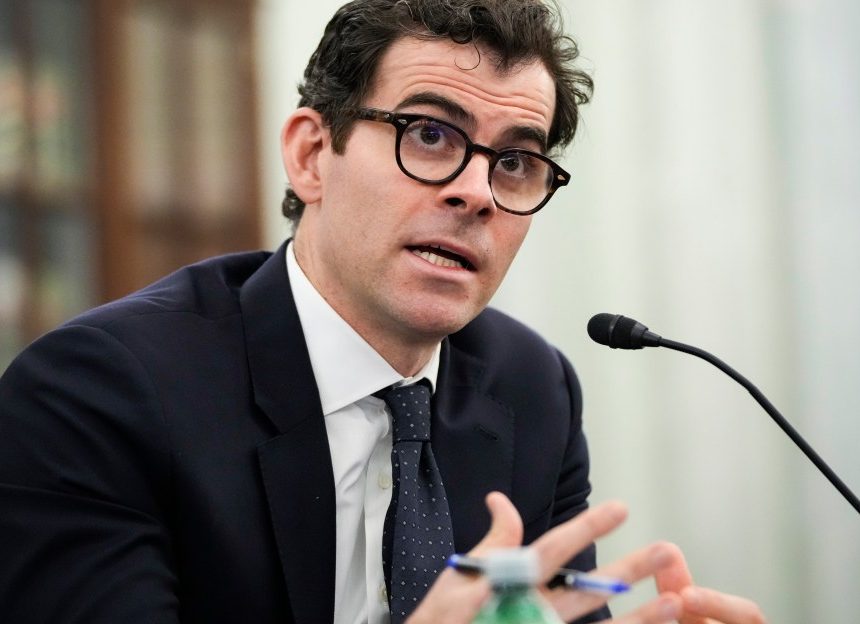Yom Kippur is the holiest day in the Jewish year, a day of repentance, prayer, fasting; and now – for two Jewish families in Manchester – also a day of mourning. It is also, increasingly, a day when terrorists visit their local synagogue to murder the Jews inside.
Six years ago, that terrorist was Stephan Balliet, a German neo-Nazi, and the synagogue was in Halle, Germany. Yesterday it was Jihad Al-Shamie, at the Heaton Park Synagogue in Manchester. Both attacks left two people dead; both were thwarted from further atrocities by the simple act of closing the front door.
Anti-Jewish terrorism has been around for a very long time. In the early 1960s an arson campaign by the National Socialist Movement hit 34 synagogues, schools and other Jewish buildings across London, one of which resulted in the death of a 19-year-old student (although no charges were ever brought for his murder). In the late 1960s Palestinian nationalist terrorism arrived from the Middle East, bringing a wave of bombings and shootings that continued into the 1990s. Since then, the baton of anti-Jewish terrorism has been taken up by Jihadist groups such as al-Qaeda and Isis and the state terror of Iran and its Lebanese proxy Hezbollah. And more recently, the social media-driven phenomenon of individual terrorists – not trained or directed by any group but produced and encouraged by online subcultures of hatred and extremism – comes in neo-Nazi, jihadist and extreme leftwing varieties. And they all have one thing in common: they target Jews.
This is why synagogues have reinforced doors and windows, cameras, gates and guards. It is why Jewish primary schoolchildren practise active shooter drills. And it is why Jewish communities across the world spend millions of pounds every year simply for the basic right of being Jewish without getting killed.
The impact this has had on Jewish life is both extraordinary and banal. Visit any Jewish community building, anywhere in the world, and you are likely to have to pass through an eye-popping level of security. This is not the result of paranoia but a reaction to reality. Most Jews take it for granted, a normal part of what is required to live a free and safe Jewish life. But it shouldn’t be normal at all.
This all long predates the rise in global antisemitism since the 7 October attacks, but there is no doubt this threat to Jews has become much more acute since then. British Jews have watched in horror as our fellow Jews were shot in the US, stabbed in France, murdered in the UAE. There have been more than 150 terrorist attacks, plots and acts of extreme violence targeting Jewish communities in more than 40 countries during the past two years. Synagogues have been burnt on five continents: no other hatred operates in such a synchronised global fashion. That it took so long to happen here has more to do with the efforts of counter-terrorist police and the security services than any lack of would-be terrorists.
This wave of anti-Jewish violence sits atop an ocean of incitement and hatred, none of which is new, much of which currently swirls around the topics of Israel and Gaza. People turn to government and police to tackle this phenomenon, and understandably so. There is likely to be much more policing for Jewish communities, more investment in security equipment and guards, more effort to extend the security blanket that is already wrapped tightly around Jewish life in this country. This will be expected and welcomed by many British Jews, but it only addresses the symptoms of this problem. It cannot tackle the cause.
Here, there are difficult questions for everyone else. Antisemitism has been allowed to rise in an unacceptable way for far too long. Last year’s official hate-crime statistics showed that a Jewish person in Britain was 12 times more likely to be the victim of a religious hate crime than someone from any other faith background. Calls for violence against Jews, or Israelis, or Zionists, online and on our streets, have become normalised in parts of our politics. And the stark truth is that, while the hard protection provided by government funding and police deployments is ideologically agnostic – a locked door can stop a jihadist terrorist just as easily as a neo-Nazi – the same cannot be said for civil society. When Jews are attacked by the far right, solidarity and sympathy flows easily from the anti-racist ecosystem that exists to protest and campaign against prejudice and hatred. But when Jews are murdered by jihadists? Not so much.
There are plenty of reasons for this, but they all amount to the reality that large swathes of the anti-racist movement that stood alongside Jews when they faced neo-Nazis in the 1960s abandoned Britain’s Jewish community a generation ago. The instinctive support that progressives show for other minorities, the sense that they are naturally on their side, has evaporated when it comes to Jews. This has to change. Support from this sector may not be able to stop the deadly threat of anti-Jewish terror. But it would certainly help British Jews feel less alone when it happens.
after newsletter promotion
-
Dave Rich is director of policy at the Community Security Trust and the author of Everyday Hate: How Antisemitism is Built into Our World – and How You Can Change it
-
Do you have an opinion on the issues raised in this article? If you would like to submit a response of up to 300 words by email to be considered for publication in our letters section, please click here.


